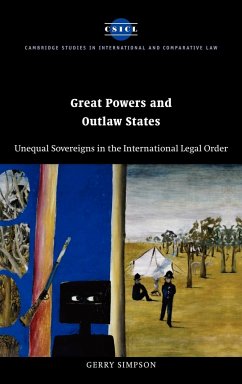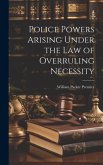From the Congress of Vienna to the "war on terrorism," the roles of "great powers and outlaw states" have had a major impact on international relations. Gerry Simpson describes the ways in which an international legal order based on "sovereign equality" has accommodated the great powers and regulated outlaw states since the beginning of the nineteenth century. Simpson also offers a way of understanding recent transformations in the global political order by recalling the lessons of the past--in particular, through the recent violent conflicts in Kosovo and Afghanistan.




![The Statutes of the United Kingdom of Great Britain and Ireland, Passed in the ... [1807-69].; Volume 99 The Statutes of the United Kingdom of Great Britain and Ireland, Passed in the ... [1807-69].; Volume 99](https://bilder.buecher.de/produkte/68/68644/68644555m.jpg)



